News & NotesDeputy athletic director Dan Trump is leaving Georgetown to take a similar position at Arkansas, per a release."In our continuing efforts to serve our student-athletes, especially in the ever-changing landscape of intercollegiate athletics, we are fortunate to be able to add Dan Trump to our Razorback Athletics team," said Arkansas athletic director Hunter Yurachek in a news release. "Dan's time as a Division I student-athlete and as a longtime athletics administrator informs his perspective and his extensive experience at a number of prominent athletics programs will be a tremendous asset to our department."Trump served with the Georgetown athletic department since 2013 and was the chief sports administrator for baseball and football. No release was made from Georgetown as to the move. NCAA Announces Changes On Transfers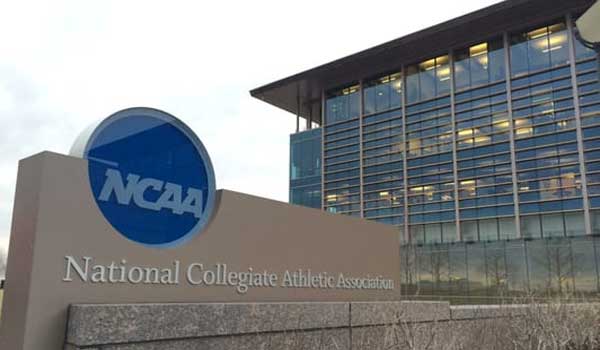 The NCAA has announced changes to the transfer policy."NCAA rules now will require any school that considers athletics when awarding scholarships to transfer student-athletes to provide that scholarship for the rest of a student's five-year eligibility or until they complete the requirements for their bachelor's degree, unless the student transfers again or engages in professional athletics opportunities," reads a release. "College athletes in all sports will continue to be immediately eligible the first time they transfer, provided they notify their schools in writing during designated notification-of-transfer windows (as determined by their sport.)"The transfer window for basketball would begin the day after the NCAA tournament selection and conclude 60 days later. Of interest to Georgetown, awaiting a decision on Arizona State transfer Jay Heath, "The board opted not to enact a new exception to the transfer rules that would allow student-athletes to transfer multiple times and be immediately eligible if they meet progress-toward-degree requirements at their new school." Big East Media Rights: How Much Are They Worth?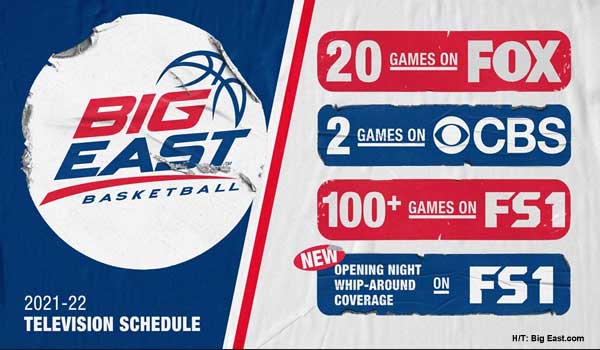 In the wake of the epic media rights contract of the Big Ten, a Marquette web site examines the opportunities available to the Big East at its next media contract review."The Big East might have more monetary value to Fox which has much less inventory than ESPN, which owns way more winter programming," writes Andrei Greska at Paint Touches. "Taking a 6-year deal will yield different outcomes than replenishing for 12 more, with differing risks. The ACC isn't even halfway through its 20 year contract and it's already looking like an albatross for the conference with no end in sight until 2036."In 2022-23, the Big East enters the 10th year of its landmark 12 year contract with Fox Sports signed in 2013, an agreement that provided stability for the reconstituted conference in a time of upheaval and approximately $4.2 million per year per school. Since the original agreement, media rights have skyrocketed in major college football conferences, with ESPN taking over primary rights for SEC football in 2024 and subsequently losing rights to the Big Ten, which move next season to a consortium of Fox, CBS, and NBC for as much as $100 million per school per year. As the article notes, the Big East isn't comparable with the Big Ten, but good relations with Fox Sports will be helpful as the initial talks begin over the next year. One question likely for Fox on its end is an an elephant in the room: is Georgetown going to come back? The Hoyas were presumed to be the ratings driver at the start of the contract but the last ten years has been anything but. Villanova, not Georgetown, has been the bell cow for ratings. "The teams within the Big East are strengthening and I think that can lead to more eyeballs," said UConn podcaster Jared Kotler in a 2021 article. For instance, does Georgetown...get back in the fold a bit more? UConn adds even more eyeballs especially as they're rising back up in relevance again too." "Big East teams are thrilled with the coverage Fox provides," said former Providence Journal columnist Kevin McNamara. "To get every game on national TV is a real coup and needs to continue, in my opinion." Report: Wahab Eligible In 22-23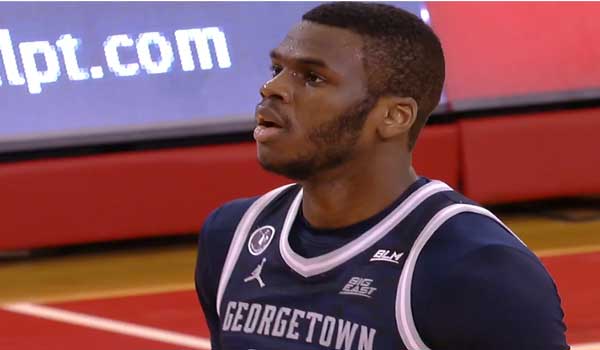 Senior center Qudus Wahab is eligible for the 2022-23 season, per reports.As first reported from Rivals.com, Wahab, 22, will not have to sit out a season after a second transfer, having left Georgetown in April 2021 for one season at Maryland. Wahab averaged 8.7 points with the Hoyas and 7.7 points with the Terrapins.Georgetown is presently the only Big East team without an official roster at this point. Head coach Patrick Ewing overrecruited this spring, and is presently one player over the NCAA limit of 13 scholarship counters. A second waiver is also pending for Arizona State guard Jay Heath. Leonsis Interested In Acquiring Nationals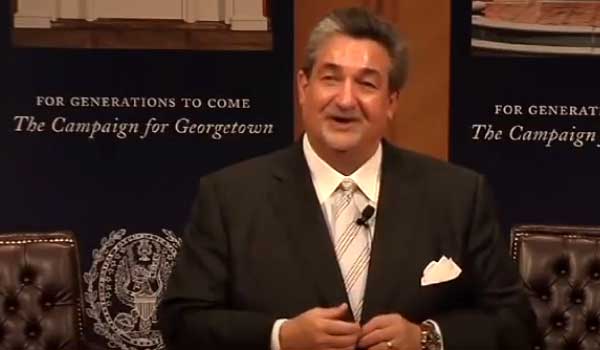 Ted Leonsis (C'77) owns three pro sports franchises in Washington and may be looking at a fourth."Leonsis, whose Monumental Sports & Entertainment controls the Wizards, Capitals and Mystics, is among the would be buyers granted access to the [Washington] Nationals' financial data, a key step in preparing a bid for the District's MLB franchise," said the Washington Post in a story Tuesday. "The Lerner family, which has owned the Nationals since 2006, announced in April it would explore the possibility of selling the club."The story got a firm "no comment" from Zach Leonsis (MBA'15), Monumental's president of new media. Coincidentally, Monumental announced Tuesday it had fully acquired NBC Sports Washington, the regional sports network which broadcasts Wizards and Capitals games. Terms were not disclosed. Dawg Talk 121, College Park Boys 91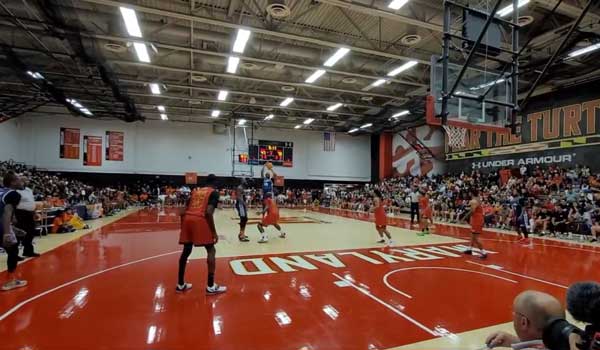 The debut of the Alumni Basketball League was a resounding success, as the Georgetown-led Dawg Talk carried the evening with a 121-91 win over the University of Maryland alumni, the College Park Boys.A standing room only crowd at the Xfinity Center Pavilion, the home of the Maryland women's volleyball team, saw Dawg Talk lead by 26 at the half, by 30 after three quarters and as many as 43, 109-66, before the Elam Ending was instituted.D'Vauntes Smith Rivera led all scorers with 25 points, 7 for 11 from three, and was named the game's MVP. Dawg Talk had six players in double figures, also including 22 from Jagan Mosely, 20 points and 11 rebounds from Henry Sims, 14 from Rodney Pryor, and 13 each from Jason Clark and Aaron Bowen. The game was a proof of concept for the Alumni Basketball League, a proposed summer league proposed for pro alumni of various college teams. Players received $2,500 each for the exhibition. The DawgTalk half of the box score is below. The scoreboard final of 117-91 did not match the final box score.
MIN 2FG 3FG FT REB A PF PTS
Starters:
Wright 16 2-4 1-5 0-0 4 3 2 7
Clark 22 5-8 1-7 0-0 3 5 1 13
Pryor 23 4-6 2-6 0-0 9 3 1 14
Sims 27 6-11 2-6 2-4 11 1 4 20
Monroe 22 3-3 0-0 1-1 8 4 4 7
Reserves:
Bowen 29 3-8 1-5 4-4 7 1 3 13
Smith-Rivera 28 2-4 7-11 0-0 4 6 0 25
Mosely 33 5-6 4-6 0-0 6 1 1 22
Team Rebounds 7
TOTALS 200 30-50 18-46 7-9 59 24 15
Ewing At 60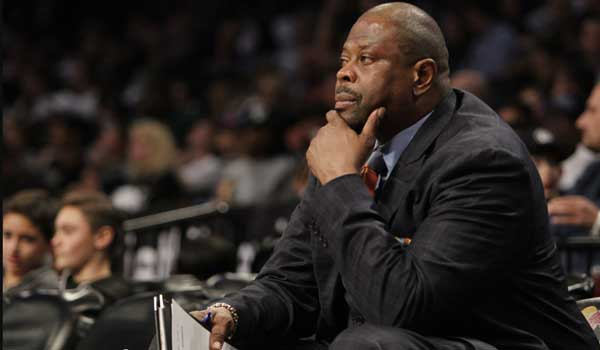 August 5th marks the 60th birthday of head coach Patrick Ewing.Born in Kingston, Jamaica and growing up in the Boston suburb of Cambridge, Ewing was a three time consensus All American at Georgetown from 1981 through his graduation in 1985, where he was chosen as the first selection of the 1985 draft by the New York Knickerbockers, with 11 NBA All-Star appearances in 15 seasons with the Knicks.A 15 year assistant coach in the NBA, Ewing was advised by former coach John Thompson to apply for the vacant Georgetown job in 2017 and was selected head coach, reportedly the only candidate advanced by its search committee. At 60, Ewing is the oldest basketball coach in program history (John Thompson having left at age 58, Elmer Ripley at 57) and is the third oldest among all prior GU athletic coaches. At 60, Ewing is physically fit for the road ahead. But while Ewing is not only the most recognizable figure in the zeitgeist of Hoya basketball, he is also at the center of the ongoing discussions across college basketball regarding the continued decline of the once powerful Georgetown program. With a cumulative record of 68-84 (.447) and just 26-63 (.292) in Big East play, Ewing has the lowest winning percentage of any current Big East coach, exacerbated by constant player turnover and an academic performance rate (APR) among the lowest of any Division I team in the nation. A 21 game losing streak didn't help either. Were his name Patrick Chambers or Patrick Skerry, he would not be back this year. But Patrick Ewing's name and reputation allowed Georgetown officials to kick the can for another season, a level of institutional tolerance for losing even Ewing himself knows is not unconditional. "With the way that things happened last year, it can never happen again on my watch," he said. Those are the battle lines for what will either mark the comeback for a struggling national identity, or the modern day version of Craig Esherick's "30 years" quote. "It's not a realistic expectation to think the Hoyas will be one of the conference's top five teams," wrote Fox Sports' John Fanta last month, "but it should be a goal for the program to fight more toward the middle of the league than to be in the basement. There have to be signs in 2022-23 that this new rebuild contains promise." The hill may be tougher at 60, but Ewing is ready for the climb. Big East, Big 12 Extend Series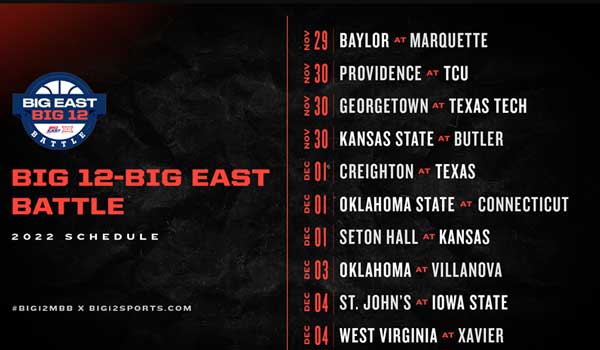 The Big East and Big 12 conferences have announced a two year extension to its non-conference series, per reports.The challenge series, previously scheduled to conclude this season, will be extended to an 11 game series through 2024-25, which will allow every Big East school to play. This extension will also cover through 2024-25, the last season Texas and Oklahoma will play in the conference before joining the SEC.Barring any changes with the Pac-12, The Big 12 will grow to 14 schools for the next two seasons with the previously announced additions of Brigham Young, Central Florida, Cincinnati, and Houston. William F. Russell (1934-2022)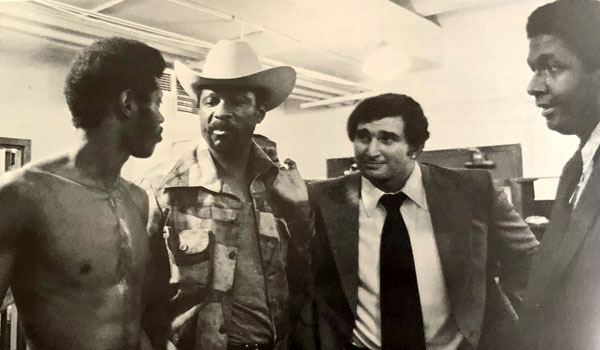 The sports world pauses for the passing of Basketball Hall of Famer Bill Russell, who died Sunday at the age of 88.Today's NBA culture is quick to crown any current star as the best of all time, even as players like Russell outshine them even today. A two time national college player of the year at San Francisco, he won 11 NBA titles in a 13 year pro career, averaging 15 points and 22 rebounds a game. Blocked shots were not tracked as a statistic in those seasons, but Russell regularly averaged five or more blocks every game.A cerebral, introspective player, Russell was a important voice in the growth of the black athlete in professional sports. In 1966, the New York Times wrote that "Russell's main characteristics are pride, intelligence, an active and appreciative sense of humor, a preoccupation with dignity, a capacity for consideration once his friendship or sympathy has been aroused, and an unwillingness to compromise whatever truths he has accepted." In this, he found a kindred spirit with a Celtics player eight years his junior--John Thompson, his backup for two seasons from 1964 to 1966. The two were decades-long friends: Russell's daughter graduated from the College in 1984. He served as a member of the Georgetown University Board of Directors from 1986 through 1992. In an article for the Washington Post, John Feinstein tells the story about how Red Auerbach was able to draft Russell, changing the course of that historic franchise. He recalls a quote when someone asked Auerbach if Russell could guard the likes of Shaquille O'Neal. "[Russell] would run him right into the floor," said Auerbach. "And when all was said and done, you know whose team would win the game? Russell's, because Russell's team always won when it mattered." In his career, wrote Feinstein, "Russell played 21 winner-take-all games and went 21-0." In a statement, Georgetown head coach Patrick Ewing remarked that "The world lost a legend with the passing of Bill Russell. His impact on basketball and society will not be forgotten. He handled every adversity with dignity and grace, and walked away a champion. My condolences to his family and those blessed enough to call him a friend." Bill Russell retired from basketball in 1969. A 2013 retrospective was produced in the documentary link below. |